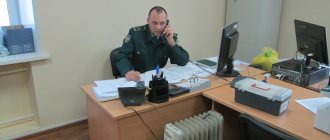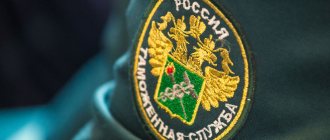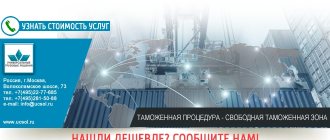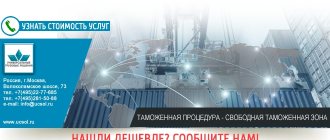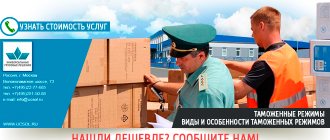Salaries of civil servants are a burning issue both among government employees and among students receiving education in this field. Customs officers make up only a part of the entire sphere of public services, but it is “Customs Affairs” that is the leading area among the specialties offered by universities. In order to understand the essence of work in the Federal Customs Service, the path to joining the service, it is necessary to delve into the intricacies of customs, as well as figure out what the salary is and what difficulties a recruit can expect.
Customs education
You can start receiving specialized education after 9 years of school. However, you need to understand that with a secondary specialized education you will not get far in the civil service. To advance through the ranks, you will need at least a bachelor's degree, and to qualify for positions from department head and above, you will need to complete a master's degree.
Recruitment to universities is carried out on a competitive basis. According to statistics, in the field of “Customs Affairs” there are 5 people vying for 1st place. In addition to full-time study, the specialty provides the opportunity to receive education via correspondence. The average cost is 150 thousand rubles/year for the first option, and 70 thousand rubles/year for the second.
Where do they teach customs?
All customs workers are divided into two groups: with special higher education and without it. At the same time, having a higher education is, in principle, almost a prerequisite, since the work requires versatile skills.
Very often among the employees you can find lawyers, economists and other specialists. But such people will not advance far, and will remain in the position of an ordinary inspector. To have the opportunity for career growth, you need to take specialized courses, or even better, get the appropriate education.
A person who graduates from a university with a degree in Customs Affairs becomes a representative of law enforcement agencies. While the rest remain “civilian”.
The following universities are most valued in this area:
- Russian Customs Academy (RTA).
- Moscow Finance and Law University (MFUA).
- Northwestern Academy of Public Administration (SZIU RANEPA).
- Russian State Trade and Economic University (RGTEU).
- Moscow University named after S.Yu. Witte.
- Russian Economic University named after. G.V. Plekhanov.
In these educational institutions, the minimum threshold for one subject is 85 points. Therefore, it will not be easy to enter here; the competition is very high. But you shouldn’t limit yourself to the best universities in the country. You can apply to a couple of universities, which will insure you in case of failure.
Studying at a top-rated university gives an excellent start in the profession, but is not a guarantee of rapid career growth. Much more important is the ability to learn, interest and a real desire to become a highly qualified customs specialist.
What subjects to take
The subjects required to be taken upon admission may differ from one university to another. But the Russian language and social studies are needed everywhere. To enter the Russian Customs Academy, you will also need a foreign language.
In MFYuA, instead of a foreign language, physical education is given. At some universities you will have to take an additional professional exam.
Employment in the Federal Customs Service
The desire to become a customs officer is supported by certain personnel requirements:
- good health, confirmed by a medical commission;
- normal mental state, since in the service you will have to face various stressful situations;
- knowledge of the legislation of the Russian Federation (including the customs code) and special disciplines, including economics, commodity science, criminology and the basics of professional ethics.
In addition to positions that require specialized education in the field of customs, the FCS has vacancies in other areas:
- Economy;
- Accounting and Finance;
- Jurisprudence.
For such employees, the service provides retraining programs or advanced training courses. The duration of training is short - from 1 month to six months.
Required personal qualities
The existing Code of Ethics and Official Conduct of Officials of the Customs Authorities of the Russian Federation shows what the state and society expect from an employee. The document touches not only on working issues, but also on the behavior of a customs officer in everyday life.
So, the main points highlighted from the Code:
- The customs officer, through his behavior, must strengthen the positive status of the customs service.
- Be conscientious about your work and perform it effectively.
- Do not use information obtained through the service for personal purposes.
- Strive to constantly improve your skills.
- Objectivity and impartiality are the most important qualities.
- Gifts from work colleagues, and even more so from citizens passing through the border, can be regarded as receiving a bribe. All gifts must be reported to management in writing. Everyday inexpensive little things (notebooks, mugs, etc.) are allowed to be given and accepted in order to avoid awkward situations in the work team.
- Public comments regarding government policies, one's workplace, and other similar matters are prohibited.
- The appearance of the customs officer must be neat and consistent with the image of the entire system.
This applies to official documents. But there are still very important qualities that a customs officer simply needs:
- stress resistance;
- knowledge of the laws of the Russian Federation;
- good memory;
- attentiveness;
- developed intuition;
- fast reaction;
- responsibility;
- diligence;
- communication skills;
- integrity.
Customs officials themselves note that this is a very responsible job that requires considerable strength, physical and moral. Despite its apparent simplicity, this is really not the easiest job.
Salary of customs officers
Customs provides two types of service - civil and law enforcement. The salary in the state civil service is formed from several components:
- Monthly salary;
- Payment for special conditions of service;
- Long service bonus;
- Savings in the budget of the territorial body;
- Working with classified material;
- Bonuses (quarterly and annual).
The amount of salary and other payments depends on the position and class rank of the employee. The average salary based on Annual Income/12 for an ordinary FCS employee is 25-35 thousand rubles. However, these figures are floating and depend on the above factors and the region. By position, you can give an approximate monthly salary:
- Inspector – 12-15 thousand rubles;
- Senior inspector - 16-18 thousand rubles;
- Chief inspector - 23-25 thousand rubles;
- Deputy head of a territorial body – 25-30 thousand rubles.
In the law enforcement branch of the Federal Customs Service, the salary is formed at other rates, and in general, it is one and a half times higher than the salary of civil servants.
Advantages and disadvantages of the profession
Both the pros and cons will depend on the position held - an ordinary inspector and a supervisor have different responsibilities. But we are talking about the initial and middle levels of the industry, and here are their characteristic advantages:
- Demand.
- Respectability.
- Significance to society.
- Benefits (customs officers are very often equated to military personnel).
- Increases in pensions are possible.
- All the benefits of civil service: medical care, paid leave, etc.
Flaws:
- Uncomfortable workplace.
- Bureaucracy.
- Corruption.
- High responsibility.
- Constant stress and pressure from citizens who disregard the law.
- Not the highest salary at the initial stage.
Alternatives to working at the Federal Customs Service
Having received an education in the field of customs, it is not necessary to get a job directly in the customs authorities. There are alternative jobs where, with the same efforts, they earn up to 150 thousand rubles. Among them:
- Consultant-assistant in drawing up papers for customs control;
- Mediation;
- Assistance in obtaining certificates for goods;
- Preparation of goods for customs inspection, preparation of accompanying documentation.
The Federal Customs Service is a government body capable of providing employees with jobs at the border, in individual departments, and at the airport. Service difficulties and nuances are compensated by monetary bonuses. The Federal Customs Service provides its employees with regular training, which subsequently makes it possible to climb the career ladder. If you are satisfied with your income level, then it is definitely worth considering the Federal Customs Service as a place of work.
Would you like to work in customs?
Who is a customs officer and what are his responsibilities?
A customs officer is a civil servant. He checks people passing through the country's border and the goods they transport. But the work activity of a customs officer does not end there.
Here is a list of his main responsibilities:
- Work at a checkpoint (checkpoint) - inspection of citizens and cargo.
- Registration of customs documentation.
- Identification and investigation of violations.
- Detection of contraband goods.
- Accounting for confiscated items.
- Crime prevention.
- Collection of state duties and fees.
Compensation of transportation expenses
Transport benefits apply not only to customs officials themselves, but also to their relatives. A FCS employee has the right to use the services of any public transport free of charge if he has an official identification card with him. Regarding the purchase of tickets for trains, intercity buses, water and air transport, the family of a Federal Customs Service employee can qualify for free travel only if:
- it is necessary to travel to the place of annual leave with salary retention (only in Russia and only for one family member);
- the employee is sent on a business trip (without family members);
- the employee is transferred to service in another region;
- it is necessary to go to a medical institution for examination or treatment and return back (as directed by the medical commission);
- undergo treatment if necessary (for widows);
- if you wish to visit the burial place of a Federal Customs Service employee who died during his service.
5 reasons why paid education is no worse than budget education
The workload is crazy – both physically and psychologically. When we worked for days, no matter what, you muster your will, you bomb for a day and you’re home for three days. And then when they made a day/night/bedtime/weekend schedule, we stopped seeing life altogether. We had at least 3-4 people at our post who graduated from RTA.
We called each other. The director spoke about the company and asked me to tell about myself in free form. We talked for about an hour, and the director invited me to a personal meeting. He conducted the face-to-face interview in English. In the end, I didn’t suit him.
The commission was also interested in what character traits a customs officer should have, how customs differs from other government agencies, and who is the chairman of the customs committee.
Firstly, this question immediately shows your self-presentation skills. It's not easy to talk about yourself, and the interviewer wants to see how you do it. Secondly, the interlocutor must hear from you exactly what details and milestones in your career you consider the most important and valuable.
Answers to common questions
Question No. 1: Can cash payments and benefits be received by a FCS employee who is missing or captured, by his wife or immediate family?
Answer: Yes, but only until the customs officer is assigned the status of missing person.
Question No. 2: Can a salary premium for work in harsh climatic conditions be established at the level of the regional leadership of the customs authority?
Answer: Yes, when working in the desert, in mountainous areas, for example, a Federal Customs Service employee can count on an additional percentage increase in salary.
Demand and payability
The work of a customs officer is in demand in Russia. The number of people crossing the border is growing every year, so it won’t be that difficult for a newcomer to get a job.
As for the salary, an ordinary inspector without work experience can count on 19 thousand rubles per month. Over time, the salary may gradually increase. The average salary is 30-35 thousand. And the salaries of bosses fluctuate around 75-120 thousand rubles.
Law enforcement representatives receive 30-40% more than civilians. Therefore, if you plan to connect your life with this activity, it is better to invest in your education.
FCS categorization: useful, but not transparent
Those who have power over us sometimes ask ridiculous questions. But if you answer incorrectly, you understand from the results that these questions are not so simple.
To paraphrase a well-known aphorism, we can say: whoever controls the information controls the interview situation.
10 minutes after the start of the aptitude test, the first lucky ones began running out of the classrooms. They were immediately surrounded by applicants, parents and vying with each other asking questions.
For an interview for a logistician, the questions may be of a projective nature, and cases cannot be avoided. The candidate will be offered a number of tasks, in solving which he will need to demonstrate the above qualities.
After receiving the documents, the stages of the competition begin. At the same time, an inspection is carried out by the internal customs security service.
The question of whether our country is now developing correctly in the economic direction made me slightly confused, but then I was able to get out of it.
There was still an hour before the start of the interview, and applicants and their parents had already filled the public garden and corridors of BSU. Future journalists nervously leafed through the central newspapers and loudly repeated the names of the editors-in-chief.
There were three refusals in the specialty “Jurisprudence”, 1 in international law and 1 in journalism.
Think about your body language in advance. If you habitually jerk your leg out of excitement, then sit cross-legged. If you tap your fingers on the table, try using something to occupy your hands, such as a ballpoint pen.
The most common mistake is the answer: “The company/job/tasks are not particularly important to me, the money is important to me.” You can be sure: if you voice this, you will not get a job in this particular company.
It is very important to ask questions that require precise quantitative answers. For example, how many cars and containers did you bring per month? How many of them were groupage and general cargo?
The most common mistake is the answer: “The company/job/tasks are not particularly important to me, the money is important to me.” You can be sure: if you voice this, you will not get a job in this particular company.
Force majeure circumstances occur in any business. Therefore, we always ask how the candidate handled such situations?
Neither the salaries nor anything else differs between those who were assigned to customs and those who came from outside.
Open space or offices. Do you have the furniture and equipment so you can go out on Monday and start working? No need to listen to the recruiter here!
Then a day is set for another stage. What should jump off your teeth is the Customs Code, 311 Federal Laws, 273 Federal Laws - mandatory for combating corruption, another 79 Federal Laws. In fact, there is a lot to learn, a lot.
Some people love it, some don't. But when business trips last for 2-3 months, this must be immediately clarified at the interview and taken into account.
That time they took her. 21 days are allotted for accepting documents, I submitted them by the end of this period - I graduated from the university, and the diploma was about to be issued. In June I submitted documents, and in August they signed a contract with me. The main thing is that the education is higher, not necessarily received at the RTA. In general, when submitting documents you need so many certificates! When I saw this list... Well, it's crazy.
Benefits for purchasing housing
Important! A one-time subsidy for the purchase of housing is provided only once and only to those customs employees who need to improve their living conditions.
The most significant benefit of customs officers is a discount when purchasing an apartment or house. More precisely, the cost of housing does not decrease, but the state takes on a significant part of the costs when purchasing it by paying the customs officer a one-time subsidy. To receive payments must meet certain requirements:
- none of the family members of a FCS employee should have their own living quarters that meet the established standards;
- the customs officer’s family must live in a rented apartment or in an apartment/house that does not meet sanitary, hygienic or space standards for one person;
- A FCS employee must be registered as a citizen in need of improved housing conditions.
What documents are needed to apply for a one-time subsidy for the purchase of housing?
To apply for a one-time social payment, a Federal Customs Service employee must take care of collecting the following documents:
| Document | A comment |
| Application for a one-time housing subsidy indicating all family members living together, living conditions, places of service, previously received privileges | |
| Passports of all family members | Those who have reached the age of 14 years and living together |
| Birth certificates for all children | Under 14 years old |
| Certificate of marriage or divorce | If the FCS employee was married or divorced |
| Conclusions of the medical and social commission on the assignment of disability | If any family member is disabled (people with disabilities are entitled to additional living space) |
| Certificate of family composition | Issued at the passport office, housing department |
| Certificate confirming that the family does not own any other residential premises | Issued by BTI |
| Insurance certificate of compulsory pension insurance | SNILS |
| Certificates from educational institutions about children completing training | From kindergarten, school, university |
| Service record of a customs officer | Must be obtained from management |
| Extracts from personal accounts | From all places of residence |
| Documents confirming the registration of ownership rights to existing housing | If the property has residential premises |
| Documents related to the current place of residence | Social tenancy agreement, rental agreement |
